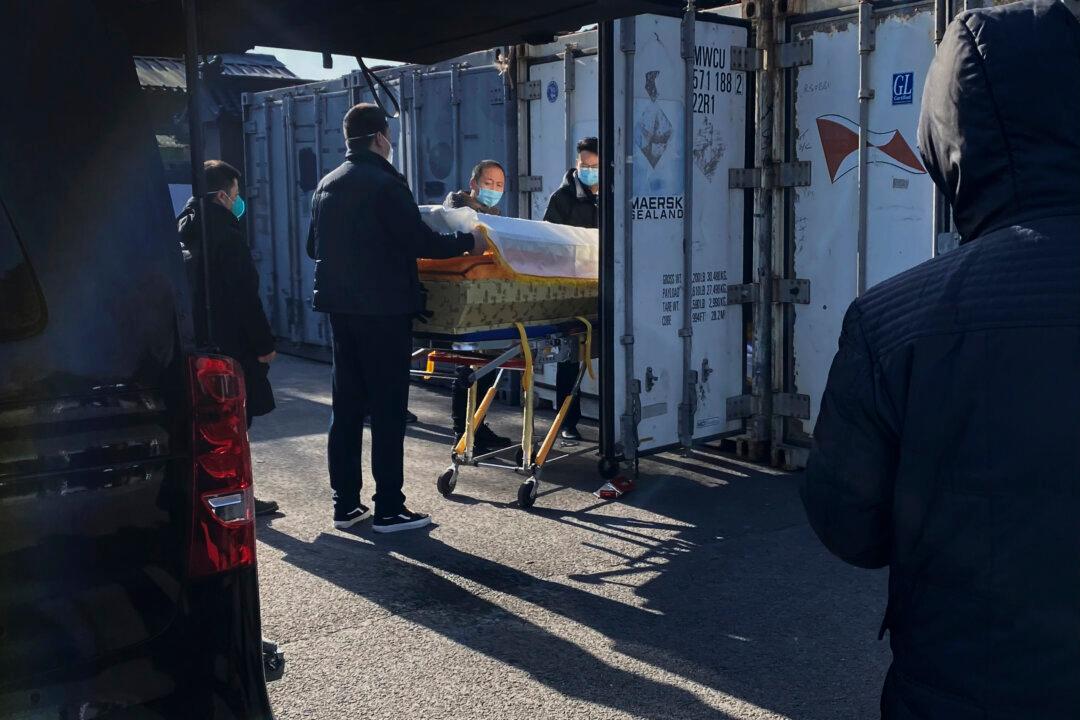On the side of a road near a Chinese funeral home, where plumes of black smoke billow out, lay a pile of charred remains—both ashes and bones.
They were found next to the Henan Zhumadian Funeral House in central China.


On the side of a road near a Chinese funeral home, where plumes of black smoke billow out, lay a pile of charred remains—both ashes and bones.
They were found next to the Henan Zhumadian Funeral House in central China.